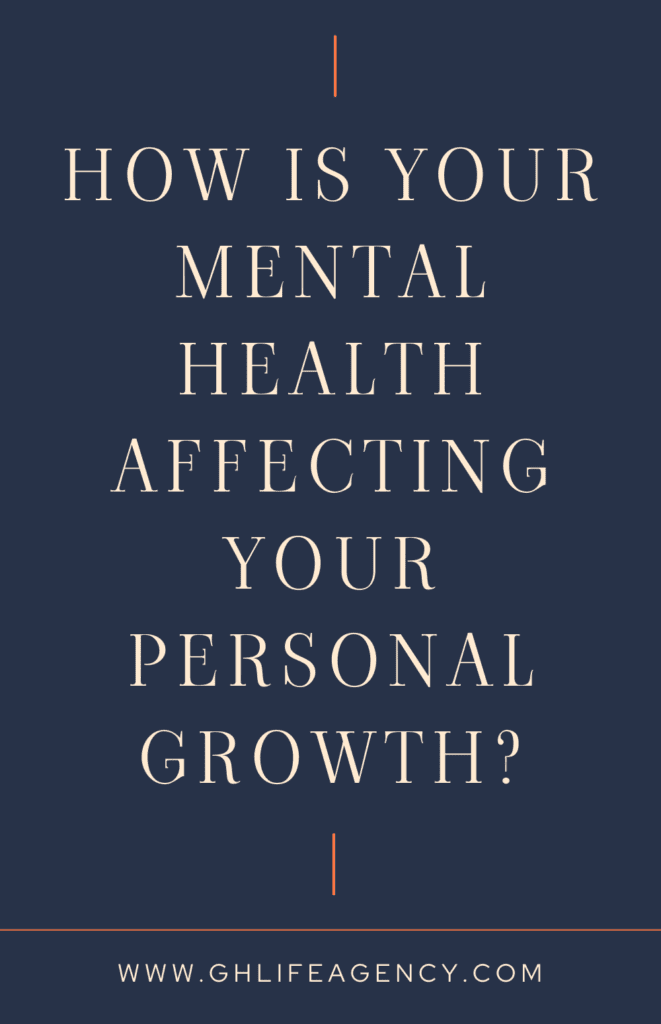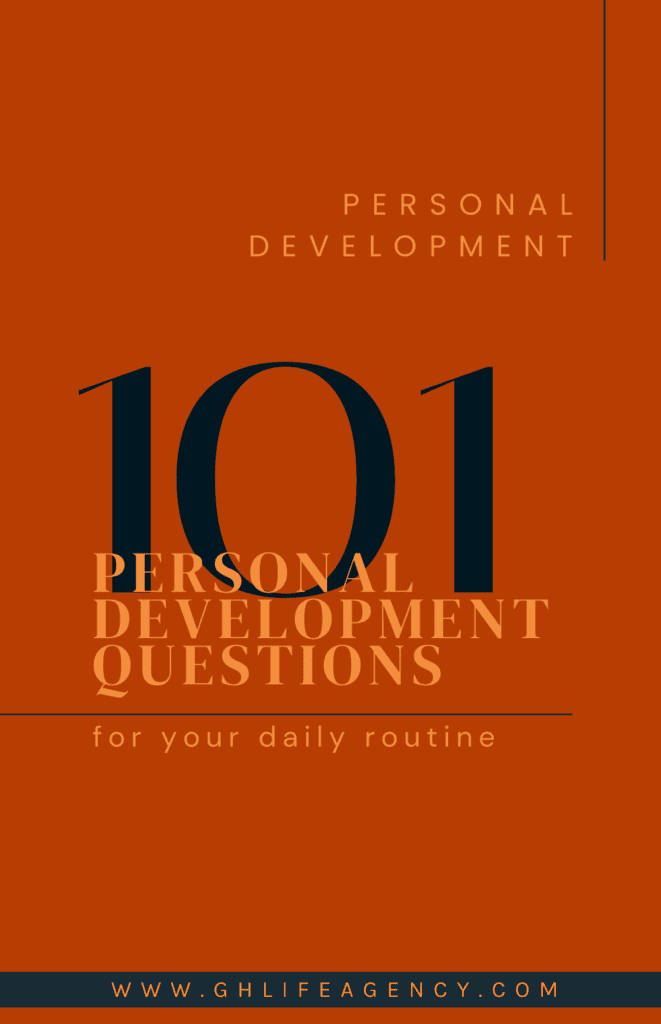Kickstart Your Journaling Routine
If you’ve ever wanted to use a journal more often and really reap all these benefits others swear by, you’ve come to the right place! Here you’ll learn all about setting up your journaling routine and really taking it to the next level.
Understanding the benefits of journaling and knowing the basics is easy enough, but when you want to be consistent with it, that requires adding the practice to your daily routine.
Why Should You Have a Journaling Routine?
The prospect of writing in a journal might seem simple, but to turn it into a habit, you’ll need to create an entire routine. The details of the routine are completely up to you, but it helps to first understand WHY you should kickstart your journaling routine.
Consistency is Key
This goes for anything in your life, especially something you want to benefit the most from. If you’ve read everything about what journaling can do for you, it isn’t going to help if you write in it once a week or whenever the mood strikes!
You need to be consistent. Write in your journal every day, preferably in the same environment around the same time. This gets it into your head that it’s time for journaling each and every day, and the more you do that, the more you see all the amazing benefits from it.
The Routine Builds a Habit
Whenever you add something new into your routine, it can be hard to pick up at first. You’re so used to your normal routine (and trust me, you have one!), that adding in a new activity takes some getting used to.
What the routine does is it helps you turn it into a habit. You schedule using your journal at a certain time of day, whether it’s when you wake up or after dinner, and eventually, it becomes so habitual that you don’t even have to think about it.
Journaling is Amazing for Your Health
By having a journaling routine, you encourage all those amazing journaling benefits. It helps with your clarity and mindset, relieves anxiety, helps with stress, and can even improve your physical health.
Change Your Mindset About Journaling
Before you start working on your journaling routine, you need to change your mindset about journaling. This means taking the idea of writing in a journal and really expanding on it by asking yourself all the important questions, like why you want to journal, what you hope to get out of it, and what place it has in your life.
Here are some questions to ask yourself that will help you figure out what your expectations are for your journaling routine:
Why Do You Want to Journal?
Are you sure you know what your own purpose and reasoning is behind the journal and journaling routine? Write down a list of all the reasons why you want to journal. They can be anything from wanting to find more clarity in your life, to looking for a place to vent.
Just like your journal itself, this list should not be judgmental or something that you are afraid to admit. If you are just curious what it can do for you, write that down! Make a list of every reason you have for creating a journaling routine.
Throughout this process, you might even discover some hidden inspirations for journaling that you had no idea were in the back of your mind. This alone can be a really therapeutic experience.
What Benefits Are You Hoping to Achieve?
Expanding more on the reasons for journaling, what are some of the benefits you want to get out of it? While the final list will be up to you, here are some different ways people often benefit by having a journal:
- Expressing thoughts and feelings, without judgment.
- Exploring your hidden passions.
- Working through difficult moments in your life.
- Setting and achieving goals.
- Understanding why you make the decisions you make.
- Reflecting on your life.
- Having a way to document your life, and keep those memories.
And so many more! There are so many wonderful benefits to writing in a journal, from wanting to finally reach those life goals you have, to figuring out why your life is at the place it is.

What Areas of Your Life Need Improving?
This journaling routine is going to help you with various areas of your life, but especially when it comes to things you want to improve. This is another great way to figure out why you want to journal and give you the motivation to keep it up.
What you’ll notice when you first start using the journal is that after a few days, you lose some of that spark. You need to continue finding inspiration, which is why this question is so important.
It allows you to see where in your life you feel you are lacking, and what you want to focus on when it comes to writing in your journal.
How Does it Fit Into Your Routine?
One last question is to figure out where journaling will fit into your daily routine. Even if you don’t realize it, you have a certain routine right now. The time you wake up, when you shower and get dressed, whether or not you eat breakfast before work, what you do at night to wind down before bed. All of this is part of your routine.
With a journaling routine, you are adding the practice of writing in your journal to a part of your daily routine. This might be in the morning, during your lunch break at work, early afternoon while in carpool, or in the evening to reflect on your day.
Make a note about how you want journaling to fit into your routine.
Morning and Night Journal Routines
An important thing to keep in mind as you are working on starting a new journaling routine is that there is a big difference in the time of day you choose for your routine. Writing in a journal at the beginning of a day is often quite different than journaling at the end of the day.
Everything is different, from your mindset and energy level, to what you want to write about and how it can benefit you.
Take a look at how journaling might change depending on if you choose a morning or nighttime routine.
Journaling in the Morning
The first option you have is to add journaling to your morning routine. This works great for many people who want a new morning routine that sets themselves up for the day. You can really improve your productivity with a morning journaling practice.
When you journal in the morning, it might include:
Set Your Intentions for the Day
This goes far beyond just making a to-do list (see below). Setting intentions is a way for you to visualize what you want your day to look like, including your mood, your positive attitude, something you are grateful for, or an inspirational quote. And morning journaling is the perfect time for having good intentions each and every day that you can focus on.
Task and To-Do Lists
Don’t forget your tasks for the day! With a morning journal, you can also use this time to write down what you need to get done, whether in your personal or professional life. Put together a to-do list, write down a daily goal, and put it in order of priority.
Gratitude
One of the most beneficial things to include in your journal is gratitude. Expressing gratitude allows you to appreciate all of the blessings in your life. It helps put you in a positive attitude, relieves stress, and helps you move past those bad days.
Inspirational Quote or Affirmationsh
If you are someone who is really trying to improve your mindset, try to also include an inspirational quote or affirmation for the day. You can use the same one each day, or change them up as needed. This is another great reason to write in your journal in the morning.
Journaling at Night
The other option is to add journaling to your nighttime routine. This is more what people think of when they think about a traditional journal or diary. You can write about your day, write how you’re feeling, and work through anything you are dealing with.
For a nighttime journaling routine, you might write about:
How Your Day Was
Writing about your day benefits you in a few ways. First, it documents your life, which is great to look back on later when you wonder what you were doing at a particular time in your life. It is also a good way to reflect on your choices, how you spend your time, and get some clarity.
Ways it Could Have Been Better
Not every day is perfect, but by expressing how you feel and what you went through that day, it also allows you to see what ways it could have been better. Have a bad day? Write about it, then include what you could have done differently. Trust me, this really helps you out in the future when trying to make decisions.

What You Are Grateful For
Gratitude isn’t just for the morning! You can also express your gratitude in the evening, especially with specifics about what you appreciate each day. It can be something as simple as having coffee with a friend or showing appreciation for a co-worker who helped you with a project.
Goals or Tasks You Completed
Have a good summary at the end of every day that shows if you completed any tasks on your to-do list, and whether or not it is helping you reach your goals.
Want to benefit from both? Try to find time in both the morning AND evening to write in your journal.
Ditch the Rules and Judgments
If there was just one mistake a lot of beginner journalers make is that they try to set too many rules. Filling up pages, writing about certain topics, making sure your spelling and grammar is on point, and the many other rules and regulations make journaling feel like a chore. And when it feels like work, it is really hard to motivate yourself to keep up with it every day.
A better solution is to make journaling a fun, carefree, rule-free activity. Don’t judge yourself for whatever you have to say, keep your journal secret so you aren’t afraid to speak your mind, and never have any rules aside from writing in the journal every day.
Here are some tips for ditching the rules and judgments when it comes to your new journaling routine:
There are No Rules in Journaling
Just because you read how other people go about their journaling practice, doesn’t mean you have to do it that way. In fact, it can take a little time for you to figure out exactly what type of journaling habit you want to have.
Want to use a notebook instead of a journal? Go for it. Not a great speller? Who cares. Just write in your journal, in whatever way works best for you. Switch up your routine as often as you need to, and stop giving yourself these pointless rules.
Keep Your Journal Secret and Private
One of the issues you might face when journaling is that you feel like you have to make it appropriate for other people. Even if you intend to keep it to yourself, you may become worried that curious eyes could find it and read it. This in turn causes you to write in such a way where you wouldn’t be embarrassed for others to see it.
The main problem with this is that you aren’t being honest and true to yourself. Keep your journal completely private and hidden from others, as this allows you to feel more comfortable to be honest. You will get a lot more from journaling when you don’t feel like you have to monitor what you say.
Never Judge Yourself
Along the same lines of being open and honest – don’t judge yourself for how you think or feel. Write about your truth, no matter what it is. Even if it’s not socially acceptable, even if you’re not sure why you feel that way or what it means. To find true clarity and discover your own path to happiness, you have to start from a place of pure, raw honesty.
Strategies for Journaling When You Don’t Feel Like it
No matter how much you enjoy writing in your journal, there are going to be times when it is the last thing you want to do. Whether because you’re tired, dealing with writers’ block, or the stress of your life is keeping you from your regular routine, it happens to the best of us.
Luckily, there are a lot of things you can do to push yourself toward writing in your journal, regardless of the reason you don’t really feel up to it.
Set a Timer
This is a little trick that works great not just for journaling, but for any time when you can’t seem to get the motivation for work. Just set a timer and know that you only have to write until that timer goes off. A good time to start with is 5 minutes, which goes by a lot faster than you think while writing in a journal. You can eventually increase the time if you want to get a little more journaling done.
Fill Up One Page
Another simple strategy for getting past writers’ block is to commit to just one page in your journal. If you have a smaller journal, this is super easy to do. Just write what comes to mind, whether that is your plans for the day or how you’re feeling, and stop once you have filled up the page.
Doodle and Draw
There is no reason you have to write in your journal! There might be a day when you’re feeling creative or just want to doodle until you think of something to write about. Get out a pen, pencil, or even a coloring pencil, and just draw what feels right to you. This is not only a good activity for de-stressing, but often sparks thoughts for your next journal entry.
Try Stream of Consciousness Writing
One thing that often keeps people from writing int heir journal is not knowing what to write about. But remember, this is your journal to do what you want with. Even if you have been trying to follow a certain topic or style, doesn’t mean you can’t just have a few days of writing whatever is in your head.
This is called stream of consciousness writing, where you don’t even think before you write. Just put pen to paper, and see what happens. The first thought can be something as simple as how your day was, and can change subjects as often as you want.
Use Journaling Prompts
Another great strategy is to use journaling prompts. There are many prompts that ask you question or direct you to a certain topic to write about. This gives you a little direction, but can also inspire other journal entries when you’re feeling a little stuck.
Kickstarting Your Routine – The First Days
For this final section, you will learn about how to choose your journaling routine, and what to do on those first few days of writing in your journal.
Choosing Your Journal and Writing Utensils
Get prepared for your journaling routine by first deciding what you are going to use for your journal. There are so many options these days, since journaling continues to become more popular. You can find soft cover and hard cover journals, spiral notebooks, traditional notebooks, and everything in between.
If you want a journal with various templates to fill in, you can also look at online printable pages that you print out and add to a binder or book of your choice.
For pens, try out a few different ones to see what you enjoy writing with. Journaling often involves a lot of writing, so you don’t want to get frustrated every day just because of choosing the wrong pen.
What Time of Day is Best for You?
As for the actual routine, think about your current schedule and when you think 5-10 minutes of writing in a journal would be most convenient. Do you want to wake up a little earlier in the morning to write before work, or would you prefer adding it to your nighttime routine?
Also consider the type of journaling you intend to do, as this might determine what time of day and environment is best.
Your First Days of Writing
For the first day of writing in your journal, it is the perfect time to write about why you want to start the journal and what you hope to get out of it. This sets your intentions and keeps you inspired.
The following few days might include:
How you’re feeling
What your goals are
What you enjoy about journaling
Just have fun with it! Allow your journal to reflect who you are and how you feel, let go of the rules, and enjoy yourself.
Journaling Prompts
1. What are some things you love about your personality?
2. What are some things you love about your physical appearance?
3. List 3 strengths you admire in yourself.
4. List 3 strengths you admire in others.
5. What brings you the most confidence?
6. What is something about yourself you used to think negatively about, but now you think positively?
7. What does positive self-talk mean to you?
8. What types of things trigger your negative self-talk?
9. What do you feel negatively affects your self confidence?
10. Have you noticed anything different lately with your self-esteem?
11. What are some confidence changes you have noticed as you have gotten older?
What are some confidence changes you have noticed as you have gotten older?
12. List 5-10 things you want to improve the most about yourself.
13. List 5-10 things you want to improve most about your life.
14. What steps have you taken so far to better your life?
15. What are some steps you still want to take to better your life?
16. What do you feel is keeping you from the necessary steps?
17. Do you know what your personal roadblocks are?
18. Do you believe you are someone who procrastinates?
19. In what ways are you getting in your own way?
20. How is your mental health affecting your personal growth?
21. What does personal growth mean to you?
What does personal growth mean to you?
22. Do you continuously work on your own personal growth?
23. When was the last time you took a course or read something to expand your knowledge?
24. What do you feel is a big part of your identity right now?
25. What do you want people to remember about you?
26. When you write in your journal, what do you feel you get from it?
27. What is something you were hoping to get more of from journaling?
28. What do you feel is a lasting impression you have on other people?
29. Do you remember the first time you wanted to work on yourself and improve your life?
30. List some of the best personal development books you have read.
31. What is the best self-help advice you have ever received?
What is the best self-help advice you have ever received?
32. What is something from your past you will always remember?
33. Write down a DONE list. Everything you have accomplished either today, this week, or this month.
34. Do you feel you give yourself enough grace when things don’t go perfectly?
35. What are some things you need to forgive yourself for?
36. What are some accomplishments you are most proud of?
37. List the biggest life goals you want to work towards.
38. List specific actions you have taken to work toward these goals.
39. Talk about the biggest challenges you have had in your life so far.
40. How have they changed you?
41. What actions have you taken to overcome your challenges?
42. What does personal strength mean to you?
What does personal strength mean to you?
43. Do you practice self-love on a regular basis?
44. How can you make yourself more of a priority?
45. Do you have unconditional love for yourself?
46. What are some past events that are dictating your present?
47. How life has gone a different direction than anticipated
48. What are your biggest priorities in your self-help journey?
49. If someone asked about your self-help journey, what would you tell them?
50. What events have made a big impact on your life?
51. Who are some people who made a big impact on your life?
52. How have you handled tragedy?
53. How have you handled stress?
54. Are you pushing yourself enough to reach your full potential?
Are you pushing yourself enough to reach your full potential?
55. What is holding you back from reaching your potential?
56. How often are you out of your comfort zone?
57. Where does your comfort zone tend to lie?
58. List 3 things you can do to get out of your comfort zone.
59. In personal development, what causes you the most anxiety?
60. Does something trigger anxiety when you are working on yourself?
61. Do you have cycles you keep going through, and get stuck in?
62. What are your thoughts on using a vision board?
63. In what ways do you like to use a vision board?
64. What is your ideal life?
What is your ideal life?
65. How far away are you from that ideal life?
66. List people who have had a positive impact in your life, and why.
67. List people who have had a negative impact in your life, and why.
68. Who are people in your life helping to motivate you?
69. What do you think has the most value in life?
70. What are your moral philosophies?
71. Do you stand by your convictions?
72. What gives you the most strength?
What gives you the most strength?
73. If life were to end tomorrow, what would be your legacy?
74. What do you want your legacy to be?
75. What are your thoughts on money?
76. What place does money have in your life?
77. Where do you want your finances to be?
78. Have you invested any of your money?
79. Have you learned about investing?
80. Do you have a retirement account?
81. Do you have long-term plans or only short term ones?
82. What is your 5-year plan?
What is your 5-year plan?
83. What is your 10-year plan?
84. What is your plan for 20 or more years?
85. What does it mean to be living the dream?
86. List 10 things that would define living the dream.
87. List 5 people you greatly admire.
88. How can you be someone that others admire?
89. What steps can you take this week toward personal development?
90. Start a daily to-do list for personal growth.
91. How can you combine self-care with self-help?
92. What is something you always wanted to do?
93. What steps will help you do something you always wanted to do?
94. How do you know when something is fulfilling to you?
How do you know when something is fulfilling to you?
95. How have your dreams changed over time?
96. Do you have a good work/life balance?
97. Describe how this year has gone for you so far.
98. How do you set your goals and priorities?
99. What brings you the most happiness and joy?
100. When you look back on your life, what do you want to remember the most?






